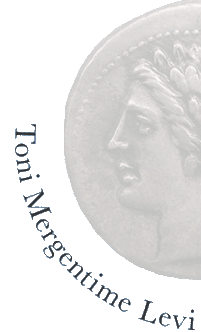
MILK
Milk arrives like a blessing in my dreams—
blue-white as a glacial waterfall from a far-off thaw.
In my most joyous dream, a precious rare appearance,
I am old—old as I am now. But suddenly, my breasts
are filled with milk again and waking I remember
the neonatal ward, where my full-term bilirubin baby
looked like some blue-ribboned, beefy best-in-show.
In reality, of normal size, my jaundiced giantess
dwarfed the pink wrinkled heartbreaking preemies
riddled with tubes and sensors in their Isolettes.
They sent me home in tears, bereft, without my baby—
blindfolded in her fish tank under therapeutic light,
without me (impossible!)—her only known universe.
For two unrelenting days at home, my milk dripped,
useless as my love. For two years after, she drank her fill.
Milk courses through my dappled world of dream.
My breasts are swollen, tender, nipples tipped in red.
My milk is a river flowing to the land of tiny babies.
All—now all can emerge from their boxes, alive.
Those who said I wouldn't have enough were wrong.
SIDEWALK
Careful—not to break my grandmother's back,
I, little Rockaway girl, in beach-white shoes
that Mother polished every night,
stepped over the cracks in the sidewalk
that were part of the neat design
all the way to the corner,
as far as I was allowed to go.
These cracks imposed a regularity
that reassured me, as the sidewalk flanked
the black burping asphalt of the summer gutter
where souped-up cars with bossy horns and wailing radios
came tearing through the stickball games of boys at dusk.
Forbidden to cross the street alone, I longed for
EVERYTHING on the other side—the Church
with its curious cross and solemn bell on Sunday,
the Vacant Lot where older kids fought wars against the Japs,
and Neil's House that had the one and only TV on the block.
Sometimes (nice!) a dandelion grew out front
in a pinch of dirt in a sidewalk crack.
Sometimes, after heavy rain, red worms emerged,
dried up and died—scared me—
what else could wriggle through?
Now I am helping my mother, eighty and demented,
shuffle down her city street in worn-out shoes,
the only ones this one-time fashion plate will wear.
We navigate anarchic cracks and potholes.
Tree roots goose the concrete up from underneath.
Freeze and thaw flex tough muscle, break apart the stone.
Mother rails against this treacherous disorder—
the Mayor's failure to make the sidewalk safe.
It's not supposed to be this way, she says.
She paces back and forth across the rug all day,
smiling, singing words to children's songs:
ding-dong bell ... up and down the clock...
one, two, buckle my shoe.
Her fine mind has cracked—
and something terrible has wriggled through.
Where she's going I cannot follow for much longer.
Watching her, I remember when city workers set down
ten grey squares of concrete in our sidewalk back in Rockaway.
They were so smooth, unlike the nubbly stone that paved
the remainder of the street. I remember the bliss
of roller-skating back and forth on those ten grey squares,
no longer caring about the other side.
EPIPHANY
What a paradox
that J.S. Bach made music 27 years
at St. Thomas Church in Leipzig.
A church whose patron saint is Doubting Thomas.
A fickle church that changed its style
(Romanesque, Baroque, then neo-Gothic)
according to the fashion of the day.
An upstart church where Martin Luther
preached the Reformation, igniting centuries
of disharmony and death.
If St. Thomas had met J.S. Bach
over fragrant cups of Arabische Kaffee,
the city’s pride.... If Bach had invited him
to hear his sacred music on a Sunday,
St. Thomas never could have doubted God.
Bach’s own faith never wavered,
even when his first wife perished,
even when child after child died.
What a man this was! This creator
of heaven’s most resplendent waterfalls of sound.
He brought even unbelievers like myself
so close to God, I could almost hear
the sighing of the seraphim. Always,
when I’ve seen or suffered awful loss,
I have turned to my supernal Bach.
And on that day I stepped inside St. Thomas,
suddenly encompassed by
his music pouring from the organ,
I did not simply begin to weep, but discovered
myself in full cry, astonished.
His ashes rest beneath the stones
in the choir room of St. Thomas.
Great Bach, our sure divining rod,
who lifts us, and yet leads us down
to the deepest waters of our selves.
GUARDIAN
When I die, I take all my forebears with me—
Great Grandma Clara, Tanta Eva, Grampa Gus.
No one else remembers.
People who live in their houses,
sleep in their beds,
know more about Napoleon.
They left no European scrawl
on frail blue tissue paper
to puzzle children
who thought they'd learned to read.
They left no vests or veils,
no recipes for strudel,
no photos in formal family pose.
The headstones in the cemetery,
where their bones are quiet dust,
don't even bear a favorite verse.
I do what I can.
I practice calling up their faces
like bubbles from deep water.
I circle and square them
into family trees. I weave them
into poems.
I tell the spellbound little ones,
"When Grandma Charlotte was a little girl,
she ate a yellow gumdrop right before supper....
I give my daughter the one garnet earring
that thieves of Eva's jewelry left behind.
All poems from White Food © 2016 by Toni Mergentime Levi
